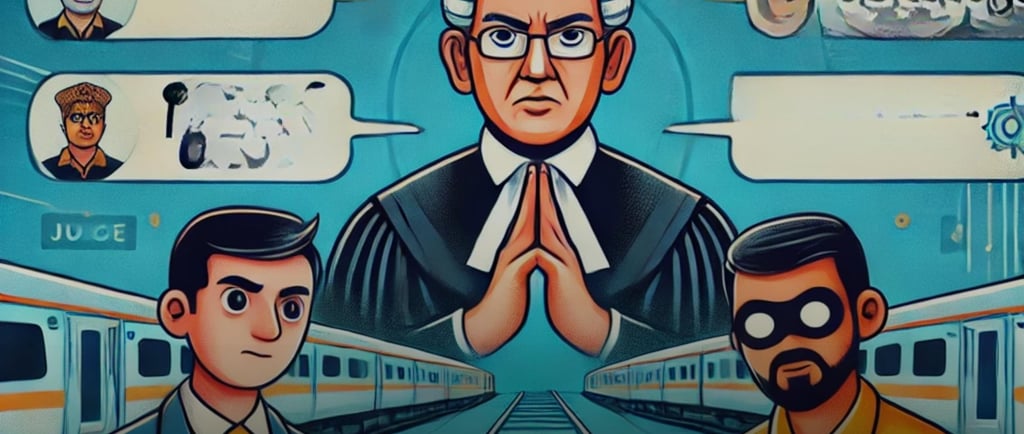Supreme Court Verdict Clarifies Section 143 of Railways Act in Landmark Case.
In a significant ruling delivered on January 9, 2025, the Supreme Court of India interpreted the scope and application of Section 143 of the Railways Act, 1989, concerning unauthorized procurement and supply of railway tickets. The judgment, arising from Criminal Appeal Nos. 4169/2024 and 139-140/2025, addressed two contrasting cases involving accused Mathew K. Cherian and J. Ramesh.
1/17/20252 min read


The cases revolved around the alleged unauthorized use of Indian Railway Catering and Tourism Corporation (IRCTC) platforms to procure and sell railway e-tickets. Mathew K. Cherian, a managing director of a non-banking finance company, was accused of creating fraudulent user IDs to conduct unauthorized ticketing operations. Meanwhile, J. Ramesh, an authorized agent, faced allegations of exploiting his position by generating multiple user IDs to procure tickets for commercial purposes.
The Kerala High Court quashed the proceedings against Mathew, citing Section 143’s outdated framing in light of modern e-ticketing systems. Conversely, the Madras High Court upheld the criminal proceedings against Ramesh, emphasizing his breach of terms despite being an authorized agent.
Supreme Court’s Analysis
A two-judge bench led by Justice Dipankar Datta provided a detailed interpretation of Section 143, asserting that the provision aims to combat unauthorized ticketing operations irrespective of the medium. The Court underscored that:
1. Legislative Intent and Technological Advances
Despite the Railways Act being enacted prior to the advent of e-ticketing, the Court emphasized its broad language, which encompasses both physical and digital ticketing transactions. The ruling highlighted that legislative provisions should adapt to new developments, citing established precedents in statutory interpretation.
2. Authorized vs. Unauthorized Operations
The Court clarified that Section 143 criminalizes unauthorized ticketing activities, regardless of whether they occur online or offline. However, it does not penalize authorized agents for breaches that fall outside the purview of the Act.
3. Nature of the Allegations
While Mathew was found to be engaging in unauthorized operations, Ramesh’s actions, though questionable, were not deemed to violate Section 143 directly. The Court emphasized that contractual violations by authorized agents should be addressed through civil proceedings, not criminal prosecution.
Outcome
The Supreme Court restored the criminal proceedings against Mathew, directing a trial court to handle the case to its logical conclusion. On the other hand, it quashed the charges against Ramesh, providing him relief from criminal liability but leaving room for potential civil actions by the Railways.
Significance
This judgment sets a precedent in distinguishing between unauthorized actions and breaches of contract within the ambit of Section 143. It reinforces the adaptability of legal provisions to evolving technological contexts while safeguarding authorized agents from unwarranted criminal liability.
By balancing strict interpretation with modern applicability, the Court’s decision aims to preserve the integrity of the Indian Railways’ ticketing system and prevent misuse of its resources, ensuring fair practices in an increasingly digitalized framework.
